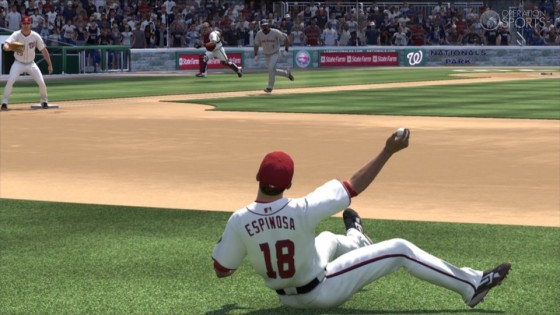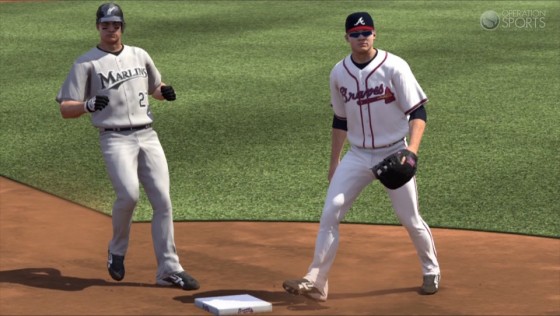

If you’ve been playing MLB 11: The Show along with the real MLB Season, hopefully you’ve secured a spot in the playoffs. It doesn’t matter if you’ve mirrored real life successes, did what the Red Sox and Braves couldn’t or captained a long shot like the Orioles or Pirates, but most playoff-bound teams can increase their success by following a few of the following guidelines.
Pitching:
Shorten your Staff: Most real MLB teams shrink their rotation, especially in the early five game Divisional series. Try to use your top three starters as much as possible, especially if there is a big drop off between your ace(s) and the bottom of your rotation.
Run on Fumes: Going hand in hand with using your premier pitchers more often is rolling the dice and pitching on fewer days rest than normal. This is especially true in critical or clinching games. In the real MLB this is a much bigger risk than in the virtual realm, where the psyche of pitchers isn’t really a factor. Again, this is a risk, but a common practice (see Chris Carpenter and the St. Louis Cardinals) when the season is on the line.
Bullpen with Caution: Similarly, successful playoff managers will use their bullpen very cautiously and with a long-term plan. If you only have two or three dependable pitchers in your pen, try to save them for critical situations. I’m sure Charlie Manual wasn’t happy that he had to bring in his closer in Saturday’s game, which was mostly out of hand. However, his initial move was to use a lesser arm to finish the game. Also pay attention to the lefty/righty match-ups.
Starters Finish:Unlike the regular season, you’ll see more starters (especially numbers four and five) pitch out of the bullpen. In The Show, this feels cheap in an exhibition or season game; but in the playoffs anything goes. Use your bottom of the rotation guys in blowout game for long-inning relief. It may not always pay off -- Oswalt lost a game last year after coming in late -- but it can certainly strengthen your bullpen.

Defense:
Late Inning Replacements: You’ll see real managers tap their defensive replacements a little more often in the playoffs, particularly if there is a big disparity in ability. With so much on the line, use your speedier outfielders and sure-handed third-basemen with a little more abandon. An error or extra out can kill your team, especially with runners on base.
Get Shifty: A feature of The Show that often goes overlooked is defensive positioning. Many players prefer to let the computer handle it; however, with a series on the line, it’s a good idea to check that fielders are set where you want. That said, it’s been my experience that virtual players don’t quite perform as predictably as their real-life counterparts. Be conservative with the Bonds or Howard shifts.
Offense:
Split ‘em up: Try to vary your lineup, avoiding adjacent lefties. Because you’re opponent may (I feel the AI in The Show plays a little too conservative) target your weaknesses, you may get the lefty specialist more often if you’ve got them stacked up in the order.
Patience is a Virtue: I know when I play The Show, especially regular season, I can get “antsy” and swing at everything. Playoffs are a good time to slow it down and change up your approach. This is more important if you are facing the Halladays, Sabathias or Verlanders of the league. Make them work and try to expose the bullpen early.
Run and Gun: This is true of the regular season too, but know when to steal. Check out the ratings of the opposing catcher (don’t just assume you know based on the real game). Pay attention to the count, and steal on pitches that figure to be off-speed (usually when the pitcher is ahead in the count). Use the hit and run, sacrifice bunt, and squeeze play -- runs will be at a premium. Also, follow the old adage of never making the first or third out at third base.
Stick to your Strengths: While some managers like to be extra aggressive in big games, don’t try to be who you aren’t. Don’t start stealing recklessly if your team is made up of slower veterans. Don’t hit and run if your team is built to hit for power and not contact. Do what got you to the playoffs in the first place.

Final Thoughts
This is all probably common sense for baseball veterans, but if this year was your first time picking up The Show (a great year to do so), this advice might help put your team over the top.
What are your best tips for the post-season?



